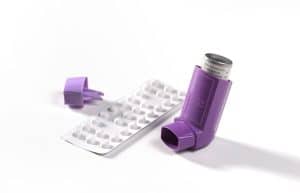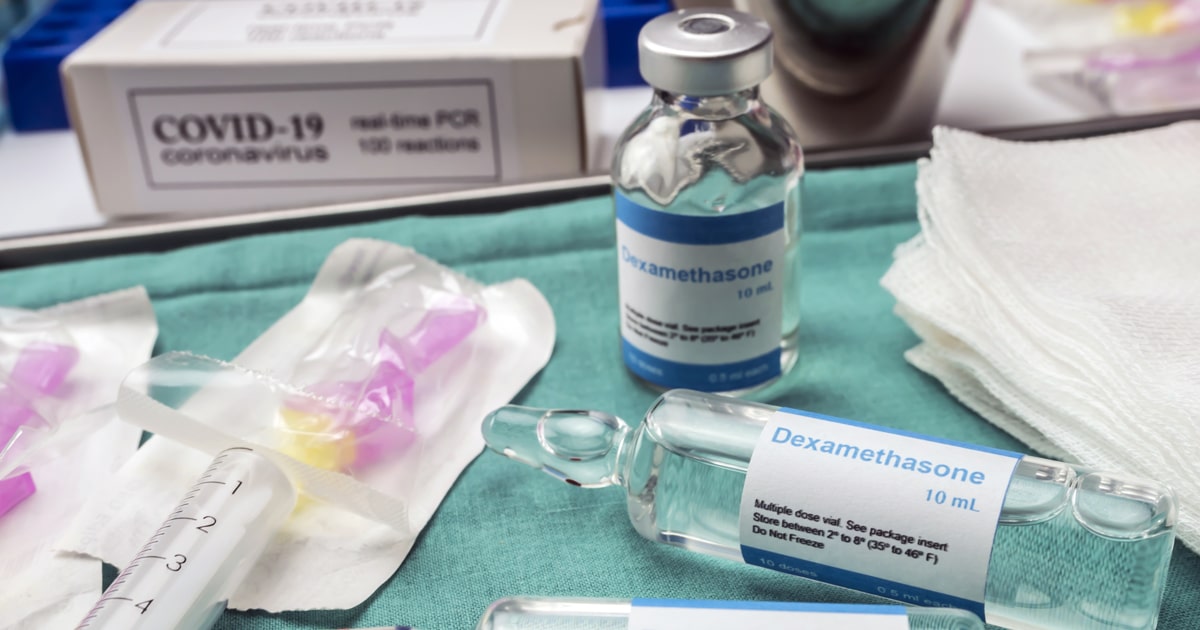Corticosteroids treat everything from allergies to cancer and can dramatically affect your body. But understanding how corticosteroids work and what side effects you’re likely to experience can help you make more informed decisions about whether it’s worth taking them. So let’s get to it!
What are Corticosteroids
Corticosteroids are a group of steroid hormones that include cortisol, aldosterone, and cortisone. They are produced from cholesterol in the adrenal cortex and regulate inflammation.
Corticosteroids are a family of drugs used to treat inflammation and allergic reactions. They are used for other conditions, including severe asthma, skin diseases, and certain types of cancer.
They can be taken as pills, inhaled through the lungs, or injected into the body. The most common side effects include fatigue, mood changes, and increased appetite.
Corticosteroids can make your body absorb calcium less effectively, which may result in osteoporosis or weakened bones. In addition, it may also lead to high blood pressure and diabetes. If you have diabetes or high blood pressure already, taking corticosteroids could make these conditions worse.
What Do They Treat?
Corticosteroids are used to treat a wide variety of conditions, from asthma to cancer. They are used in many states, including allergic reactions, skin diseases, eye inflammation, and inflammatory bowel disease. When you take a corticosteroid medication, it helps to reduce the swelling, itching, and redness in your body that is caused by inflammation. consequently, they suppress the immune system, reduce inflammation, and relieve symptoms. These medications may also help relieve symptoms such as joint pain or muscle pain associated with disorders such as arthritis or lupus.
What Are The Types
Corticosteroids are anti-inflammatory drugs that reduce swelling, itching, and redness. They work by suppressing your immune system’s inflammatory response.
There are many different types of corticosteroids. Some require a prescription from your doctor, while others are available over the counter. Corticosteroids are a group of hormones that your adrenal glands secrete.
Topical corticosteroids

This is the most common type. It is used to treat skin conditions such as dermatitis and eczema. in addition, they can be applied directly onto the skin or taken by mouth in pill or liquid form.
Inhaled steroids (budesonide)

These are used for asthma and chronic obstructive pulmonary disease (COPD). They are inhaled via a metered-dose inhaler (MDI) device and can be taken with other asthma medications.
Systemic steroids (prednisone).
This oral medication enters your bloodstream and travels throughout your body. It treats severe allergic reactions (anaphylaxis), inflammatory bowel diseases, arthritis, and severe asthma attacks that don’t respond to other treatments.
- Cortisone is the most common corticosteroid type that reduce swelling in soft tissue and joints and for other medical problems. Hydrocortisone is another example of a corticosteroid drug that can work topically or systemically.
- Other examples include betamethasone, dexamethasone, flumethasone, prednisolone, and prednisone.
Common Corticosteroids
There are many different types of corticosteroids, but the most common include:
Prednisone: It is a potent glucocorticoid. It is one of the most commonly prescribed corticosteroids for people with inflammatory conditions like asthma and rheumatoid arthritis.
Methylprednisolone: A moderately potent glucocorticoid.
Prednisolone: A moderate-strength glucocorticoid.
Betamethasone: A weak glucocorticoid, but it has some anti-inflammatory properties.
Triamcinolone: This increases the risk of diabetes and osteoporosis, therefore, it does not have much use.
Methylprednisolone is a short-acting corticosteroid used in eye surgery to treat acute multiple sclerosis attacks.
Dexamethasone: Dexamethasone treats several conditions, including arthritis, lupus, asthma, and cancer treatment side effects.
What are the Side Effects of Corticosteroids?
The side effects of corticosteroids include:
- Thinning and skin weakening can lead to easy bruising, itching, poor wound healing, and an increased risk of infection.
- Easy bruising is particularly common in people who have taken oral corticosteroids for a long time. It can also happen if you take high doses of a topical steroid cream or ointment on your face or body.
- Thinning of the bones (osteoporosis). People can prevent this by taking calcium and vitamin D supplements. If you’re taking high doses of a topical steroid cream or ointment on your face or body, you should wear sunscreen to protect against sunburn while using the treatment. Taking vitamin D supplements may also help prevent osteoporosis from developing in this way.
- Glaucoma – increased pressure within the eye caused by damage to the optic nerve. This can occur with any glaucoma medication, including steroids. Your GP will monitor your eye pressure during treatment with steroids and may prescribe an additional drug to help lower it if necessary.
- Diabetes patients taking oral steroids may experience elevated blood sugar levels.
- People who use corticosteroids commonly experience weight gain and muscle weakness. This is because they treat conditions that cause body tissues to break down or atrophy. For example, people with autoimmune disorders such as rheumatoid arthritis lose cartilage in their joints over time, and taking high doses of corticosteroids can accelerate this process.
- Other common side effects include insomnia and mood changes. Some people don’t respond well to medications at all—so if your doctor prescribes you a drug that causes adverse reactions like these, do not hesitate to tell them!
Tips to Minimize The Side Effects
When you have a condition that requires corticosteroids, it’s helpful to know how to minimize the side effects of these medications. You can do this by:
- Avoiding taking corticosteroids before going to bed. Corticosteroids may cause insomnia and poor sleep quality.
- Staying away from the pills when you are in a hurry.
- Avoiding mixing alcohol with these drugs could increase the risk of developing hypoglycemia, an abnormally low blood sugar level that causes weakness, confusion, and sweating.
Conclusion
To conclude, corticosteroids are potent drugs that you can use to treat many different conditions, including asthma and arthritis. The key takeaway is that while corticosteroids benefit your health and can improve your quality of life, it’s essential to understand their workings and use them to get the most out of them. Therefore, doing your research and consulting your doctor can help ensure that you’ll be able to benefit from these drugs and avoid any potential side effects.



